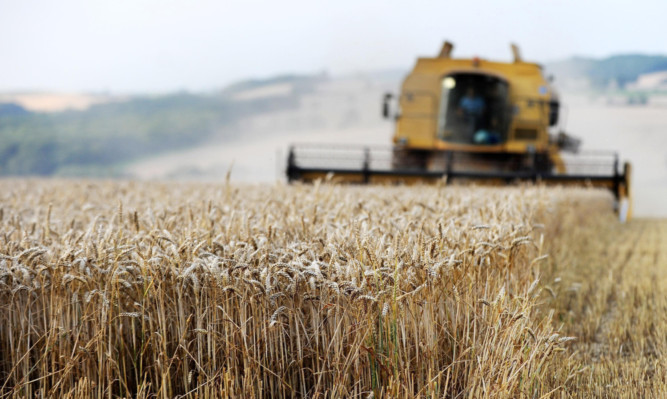Britain’s largest arable inputs and marketing firm has blamed a “tough trading environment” for a £71.757 million drop in turnover.
Frontier Agriculture, which operates across 46 sites in the UK, including Perth, Invergordon and Newmachar in Scotland, reported turnover of £1.444 billion for the year ended June 30 2015. This is down from £1.516bn the year before.
The firm, which carries out marketing for north-east grain cooperative Aberdeen Grain, posted pre-tax profits of £34.755m in the year, which is down slightly from £34.845m in 2014.
The bulk of sales were to the UK, representing £1.297bn of total turnover, while sales to the rest of the world were up in the year to £147.293m, from £113.114m previously.
In accounts filed with Companies House, group chairman David Yiend said: “For the third year running global commodity volatility was dampened by benign weather patterns resulting in plentiful worldwide grain stocks.
“The UK market was again predominantly influenced by domestic supply and demand factors.
“Favourable autumn 2013 planting conditions resulted in a strong recovery in the winter cereal acreage.
“A mild winter and a cold bright spring further added to the generally bearish sentiment.
“Protein deficiencies again saw wheat imports featuring strongly to replace shortfalls in milling quality.
“The relatively high value of sterling made grain exports difficult resulting in a large carry through of wheat stocks.”
He said despite the bearish grain market, short upward price movements driven by currency spreads and weather concerns were anticipated to create market opportunities to lock in value.
Mr Yiend added that the group, which employs more than 940 people, had committed £5m to new capital expenditure in the year, towards “customer facing assets in grain storage, seed processing, crop protection distribution, crop trials and smart IT software”.
On the year ahead, Mr Yiend said he expected further growth as a result of acquisitions, grain marketing partnerships, new agronomists and capital investment.
“The company has proved once again, that in spite of exceptional weather, market and commodity price cyclicality it remains uniquely structured and resourced to deliver real value through strong collaborative partnerships with its farmers and with food, feed and biofuel industry customers,” added Mr Yiend.
The accounts also revealed that the highest-paid director received £699,000 in the year, up 7% from £654,000 the year before.
